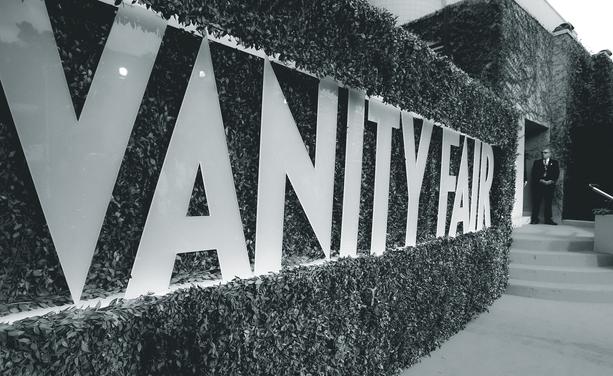2026-02-12 14:49:34
Following federal cuts to history-focused organizations, the president of the Canadian Historical Association, Colin Coates, sent this letter to Marc Miller, the Minister of Canadian Identity and Culture.
One thing might not be obvious: Coates's reference to Carney's recent Quebec City speech suggests Canadians' need for historical context right now. He doesn't agree with Carney's claims. In fact, most Canadian historians would dispute them.
2026-01-16 18:33:46
So the Canada - China trade deal just announced is interesting, particularly regarding Electric Vehicles. It was primarily about restoring our agricultural trade with China by allowing their EVs to access our market. But it will likely, despite the limited amount that will hit our shores, jumpstart the EV market in Canada. Cars that are feature rich and cost less, like the one reviewed in the YT video linked below, will push current manufacturers in Canada to up their game.
Doug Ford abandoned his Captain Canada persona and selfishly attacked the deal because of potential impact on Ontario's auto industry. Part of his statement demanded that the Federal government cancel their Electric Vehicle mandates because it was too costly for manufacturers to build them. I think Toyota and Honda, long time Canadian partners, may be concerned about the deal, but U.S. manufacturers are abandoning EVs and Canada. Hey Doug, I thought we were Open for Business?
#CanPoli #GlobalTrade
https://youtu.be/Mb6H7trzMfI
2025-12-14 20:20:30
Support Indigenous Land Defender Marcos Aguilar’s Family
(original: https://www.instagram.com/p/DSFUcy_jKU7 by zapatistasolidaritynetwork)
On November 26, 2025, Indigenous land defender Marcos Aguilar Rojas was assassinated for protecting his anc
2025-12-18 18:11:56
I'm hopeful that the current RAM crisis will end up tanking demand for other hardware to the extent that I'll be able to pick up a future Zen6 chip and AM5 board (or at least a 5950X) for less than they'd otherwise go for. Let's arbitrage this shit to our advantage! (I will shortly have a recurring CPU-bound task that will benefit greatly from doubling my core count or other improvements, and I do have 2x16GB DDR5 SoDIMMs that I could press into service with an adapter in a n…
2025-12-13 12:38:59
"To future historians—not just of computing, but of humanity—the current period will be a dark age.
How was Facebook used by students in the 2010s? We cannot show you, that version of Facebook is not hosted anywhere.
What correspondence did Vint Cerf have as president of the ACM with other luminaries of computing industry and research? We do not know; Google will not publish his emails."
2025-12-02 16:37:19
Why donate to SEEC PAC?
The Sustainable Energy and Environment Coalition Political Action Committee
exists to support SEEC members in Congress and candidates who fight for clean energy, climate change solutions, environmental justice, and protection of our nation’s clean air, water, wildlife, and natural environment.
https://seecpac.org/<…
2025-12-09 14:29:05
So this is percolating and the results so far are not surprising.
I'd vote NO, for the following reasons:
- oil demand continues to decline and risk is high we'll end up with an expensive underutilized pipeline. Therefore high risk we'll end up subsidizing any private entity that builds this thing.
- why would we invest public dollars to support infrastructure for a product where 75% of the profit leaves Canada? There has to be a net benefit, beyond steel sales and jobs, for this project to be considered.
- Indigenous land rights must be respected. They will be left with the rusting pipeline decades in the future, and it's impact on the land.
- the B.C. government must also have a final vote as they have to give up land and provide support.
- we don't need additional oil tankers on our west coast.
- and most importantly, with this MOU, Canada pretty much declared we aren't serious about protecting the environment or fighting climate change. We're oil whores. Harsh but....
#CanPoli #ClimateAction
2026-02-06 23:17:41
From Open Media
Sign Canada’s Digital Sovereignty Charter
Canadian democracy is under threat. Algorithms and deceptive content are shaping what we see, think, and share, while foreign tech giants collect our data without limits.
Our current laws and digital systems aren’t strong enough to protect us. This leaves Canadian voices, our choices, and our digital identities at risk. Parliament must step up and champion Canada’s Digital Sovereignty Charter now
2026-02-05 10:24:10
2025-12-04 11:15:50
Sources: Vanity Fair's February issue, already in print, lists Olivia Nuzzi as West Coast editor; staffers are yet to get an update on VF's Nuzzi investigation (Natalie Korach/Status)
https://www.status.news/p/olivia-nuzzi-book-vanity-fair-conde-nast-…








